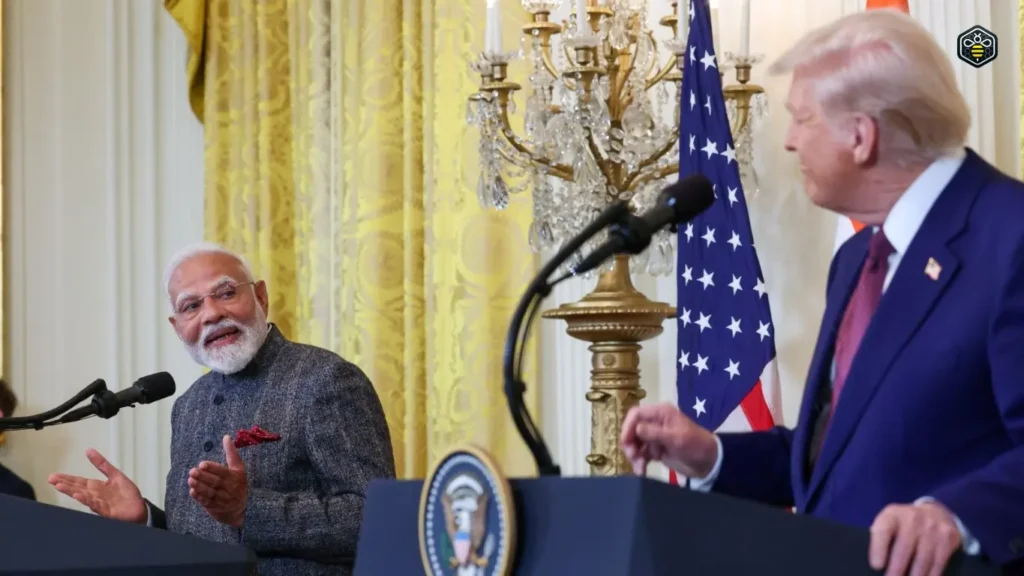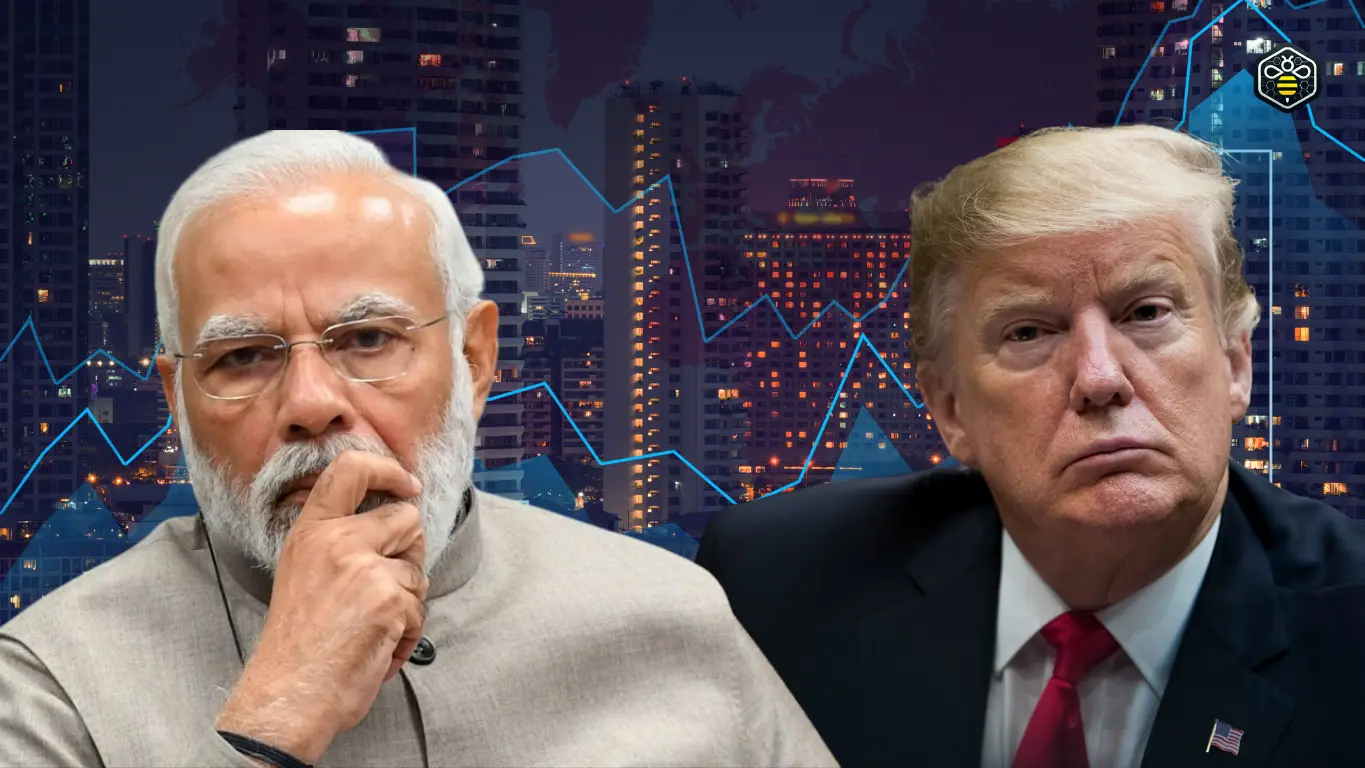
The recent Modi-Trump meeting in February 2025 has ushered in a new chapter in India-US relations, focusing on defense collaboration, trade expansion, energy security, and technological innovation. This comprehensive dialogue reflects the evolving dynamics between the world’s largest democracies, aiming to foster mutual growth and address global challenges.
Strengthening Defense Partnerships
A cornerstone of the discussions was the enhancement of defense ties. India and the United States unveiled a new 10-year defense framework, signaling a commitment to deeper military cooperation across multiple domains. Key aspects include:
Acquisition of Advanced Defense Systems: India is set to procure cutting-edge defense equipment from the U.S., including the state-of-the-art F-35 stealth fighter jets. This move is poised to bolster India’s aerial capabilities and modernize its defense arsenal.
Expansion of Co-Production Initiatives: Both nations agreed to enhance joint production of defense technologies, fostering industrial collaboration and technological exchange. This initiative aims to reduce dependency on traditional suppliers and promote self-reliance in defense manufacturing.
Streamlining Regulatory Frameworks: Efforts are underway to simplify the International Traffic in Arms Regulations (ITAR), facilitating smoother technology transfers and collaborative development of defense systems.
While these developments mark significant progress, experts advise cautious optimism. India’s historical reliance on diverse defense suppliers necessitates a balanced approach to ensure seamless integration of new technologies and maintain strategic autonomy.
Boosting Trade and Investment
Economic collaboration was a pivotal theme, with both leaders expressing a shared vision to elevate bilateral trade. Key initiatives include:
Ambitious Trade Targets: A mutual commitment was made to more than double bilateral trade, aiming to reach $500 billion within this decade. This goal underscores the dedication to removing trade barriers and fostering a conducive environment for businesses in both countries.
Market Access Enhancements: India has undertaken measures to reduce import duties on select American products. Notably, the import duty on bourbon whiskey has been slashed to 50%, a move anticipated to boost trade in this sector and address longstanding tariff concerns.
Agricultural Trade Cooperation: Both nations have pledged to enhance market access for each other’s agricultural products. This includes increased exports of Indian mangoes and pomegranates to the U.S., while India will allow greater access for American products such as alfalfa hay and certain meat products.
These initiatives reflect a strategic effort to balance trade dynamics, address deficits, and create opportunities for industries in both countries.
Enhancing Energy Security
Energy collaboration remains a cornerstone of the India-US partnership, with a focus on:
Diversification of Energy Sources: India has committed to increasing imports of American energy resources, including oil and natural gas. This strategy aims to diversify India’s energy portfolio, reduce dependence on traditional suppliers, and enhance energy security.
Civil Nuclear Cooperation: Discussions were held on advancing civil nuclear energy collaboration, with plans to develop small modular reactors in India. This initiative seeks to provide clean and sustainable energy solutions, contributing to India’s growing energy demands.
Advancing Technology and Innovation
Technological collaboration is poised to be a catalyst for future growth in India-US relations. Key areas of focus include:
Innovation in Emerging Technologies: Both nations have agreed to collaborate on cutting-edge fields such as artificial intelligence, quantum computing, and biotechnology. This partnership aims to foster innovation ecosystems, drive economic growth, and address global challenges through technological solutions.
Strategic Mineral Cooperation: Recognizing the importance of critical minerals in technology manufacturing, a joint initiative has been launched to enhance the processing and supply chain of these resources. This move is expected to support the development of high-tech industries and reduce supply chain vulnerabilities.
Addressing Immigration and Humanitarian Concerns
The dialogue also encompassed sensitive issues such as immigration. In a notable development, India has agreed to repatriate over 100 of its nationals who were residing illegally in the United States. This decision reflects a commitment to uphold international laws and address immigration challenges collaboratively.
The Road Ahead for India-US Relations
The Modi-Trump meeting has set a robust agenda for the future of India-US relations. With strategic initiatives spanning defense, trade, energy, technology, and humanitarian cooperation, both nations are poised to navigate the complexities of the global landscape together. This partnership not only aims to foster bilateral growth but also aspires to contribute to regional stability and global prosperity.
What are your thoughts on these developments? Share your perspectives in the comments below!

